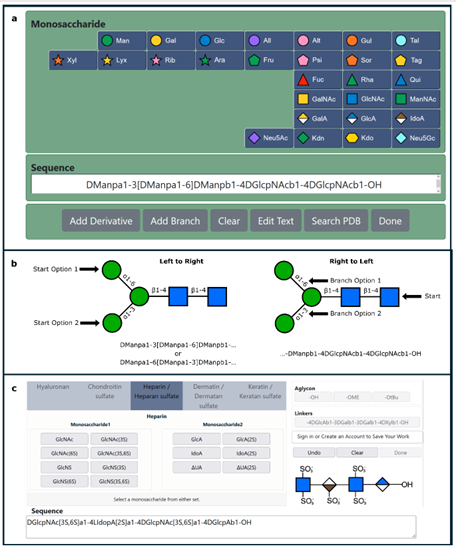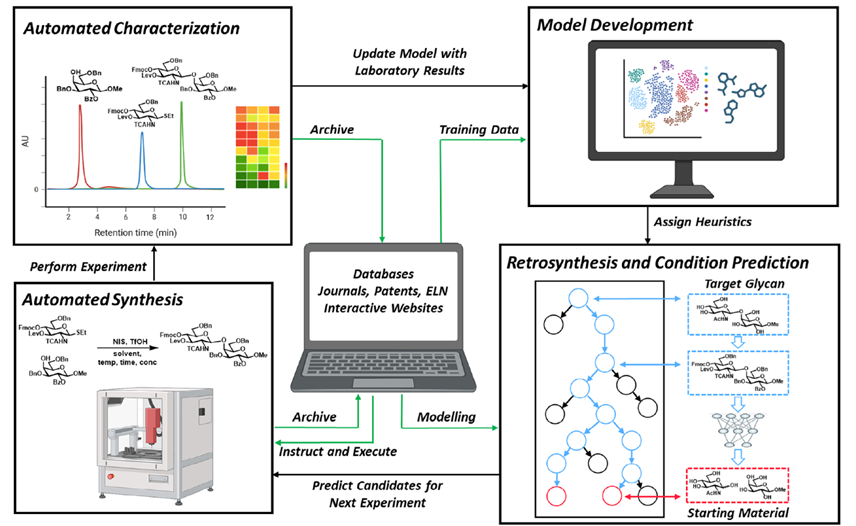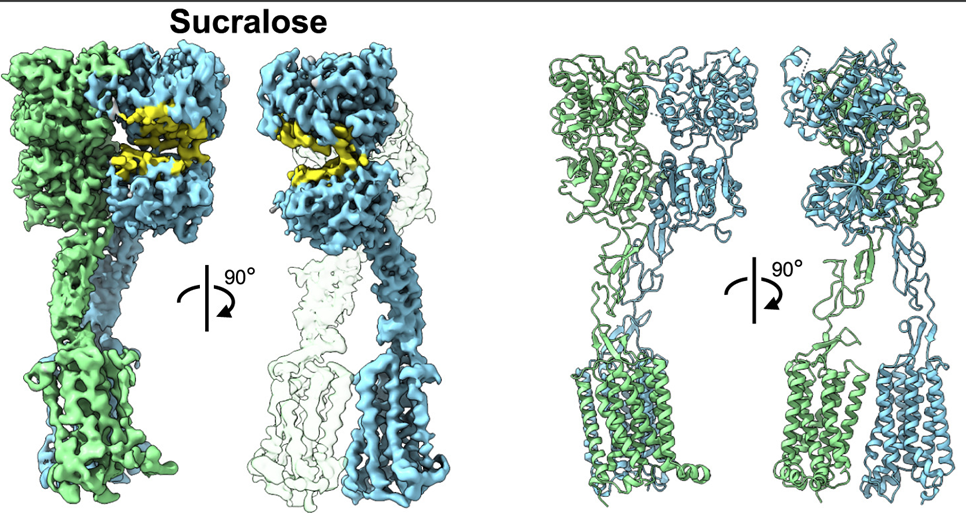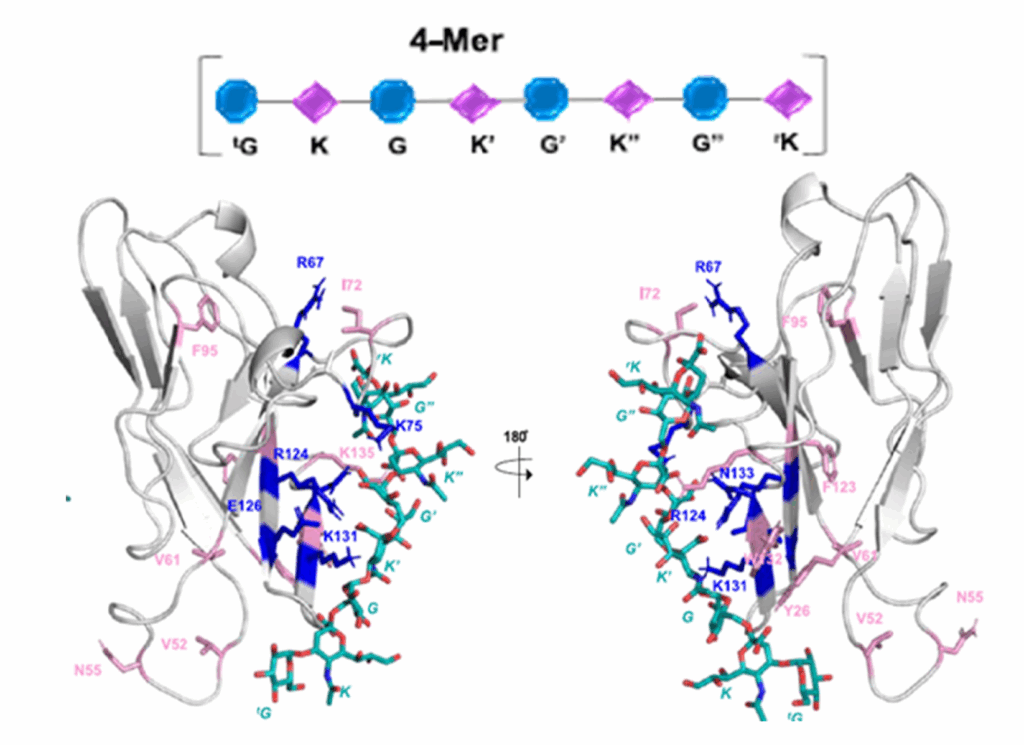Extracellular matrixes (ECMs) are intricate 3-dimensional macromolecular networks of unique architectures with regulatory roles in cell morphology and functionality. As a dynamic native biomaterial, ECM undergoes constant but tightly controlled remodeling that is crucial for maintaining normal cellular behavior. Under pathological conditions like cancer, ECM remodeling ceases to be subjected to control, resulting in disease initiation and progression. ECM comprises a staggering number of molecules that interact not only with one another but also with neighboring cells via cell surface receptors. Such interactions are paramount for identifying novel disease biomarkers and more personalized therapeutic interventions.
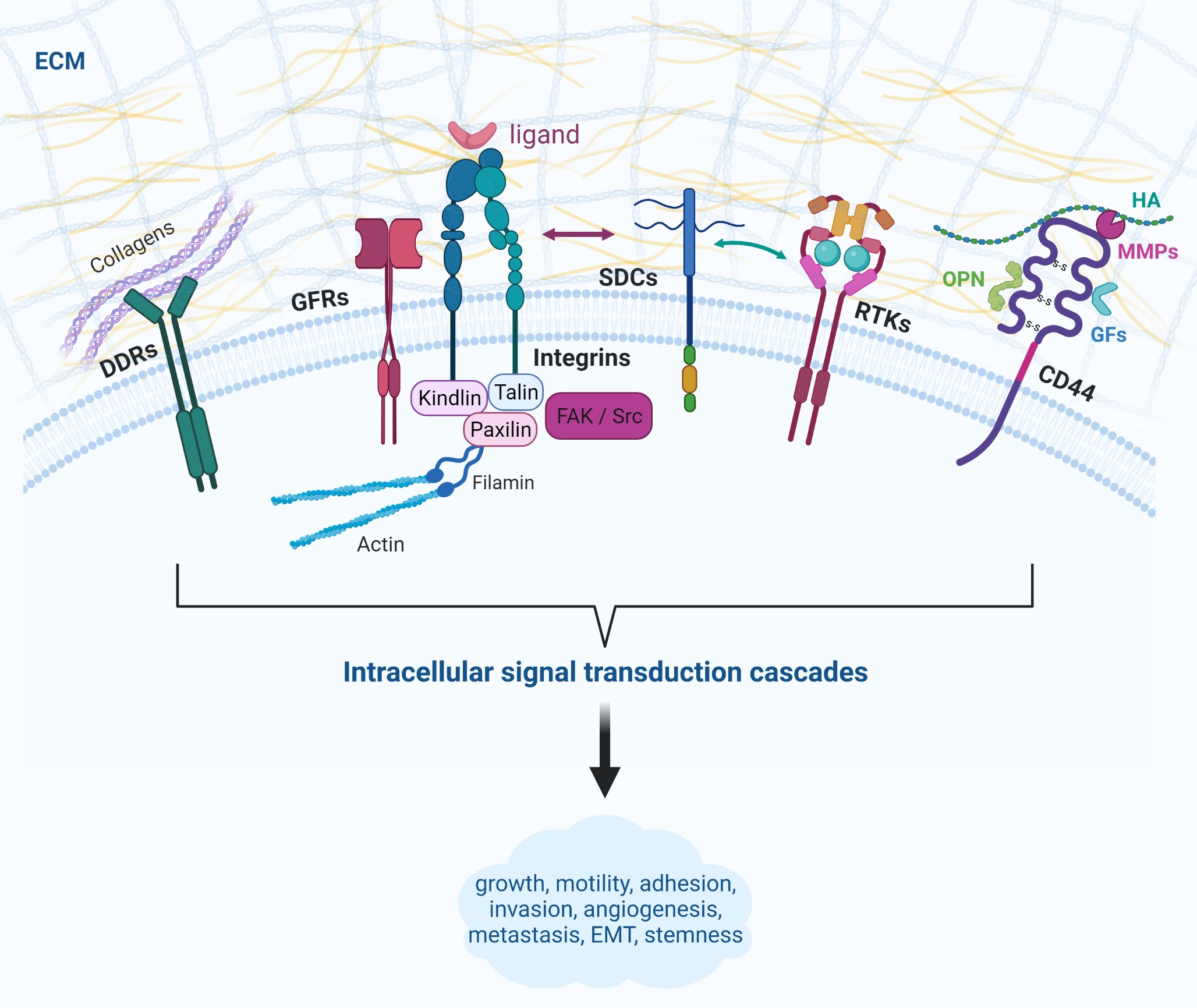
Recent advances in big data analytics have allowed the development of online databases where researchers can take advantage of a stochastic evaluation of all the possible interactions and narrow them down to only those of interest for their study, respectively. This novel approach addresses the limitations that currently exist in studies, expands our understanding of ECM interactions, and has the potential to advance the development of targeted therapies. This review article presents the current trends in ECM biology research. It highlights its importance in tissue integrity, the significant interaction networks, ECM-mediated cell functional properties and issues related to pharmacological targeting.

